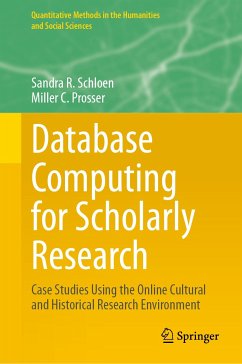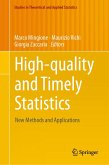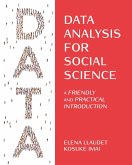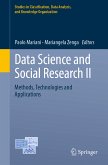Data generated by studies in the humanities and social sciences is often semi-structured, fragmented, highly variable, and subject to many interpretations, making it difficult to represent adequately in a conventional database. The authors examine commonly used methods of data management in the humanities and offer a compelling argument for a different approach that takes advantage of powerful computational techniques for organizing scholarly information.
This book is achallenge to scholars in the humanities and social sciences, asking them to expect more from technology as they pursue their research goals. Written jointly by a software engineer and a research scholar, each with many years of experience in applying database methods to diverse kinds of scholarly data, it shows how scholars can make the most of their existing data while going beyond the limitations of commonly used software tools to represent their objects of study in a more accurate, nuanced, and flexible way.
Dieser Download kann aus rechtlichen Gründen nur mit Rechnungsadresse in A, B, BG, CY, CZ, D, DK, EW, E, FIN, F, GR, HR, H, IRL, I, LT, L, LR, M, NL, PL, P, R, S, SLO, SK ausgeliefert werden.









